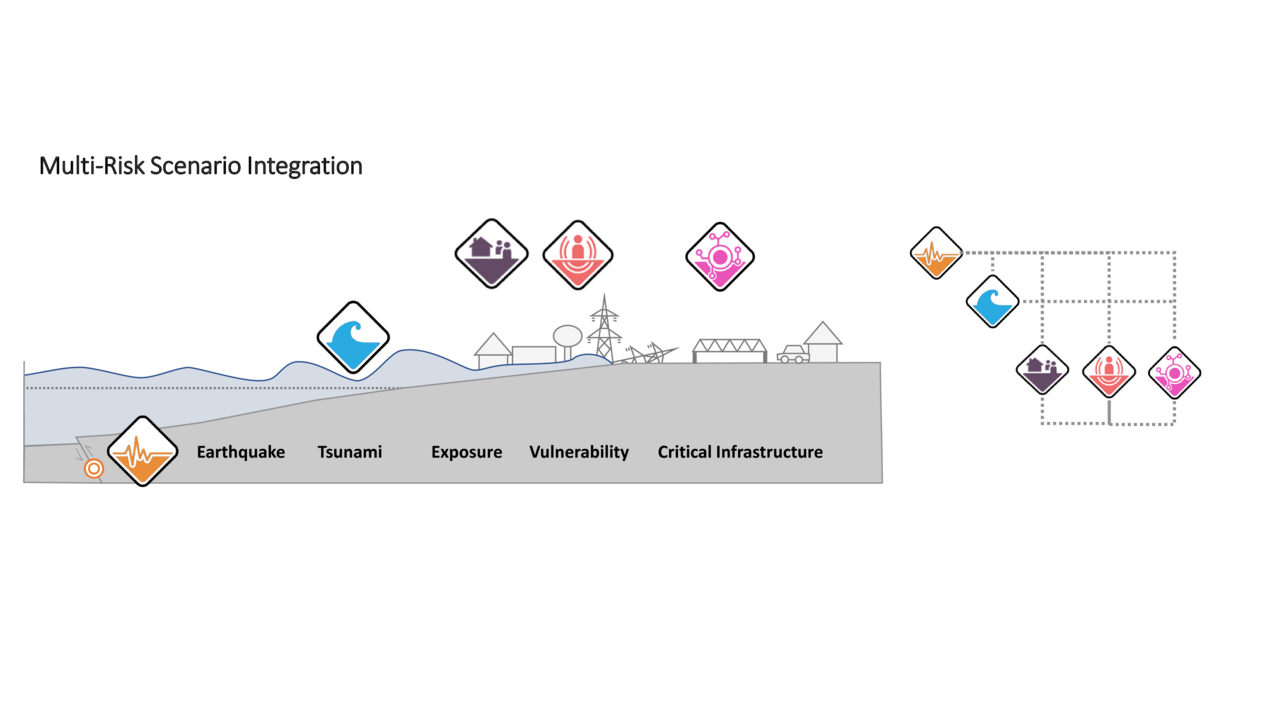Multi-risk analysis and information system components for the Andes region (RIESGOS)
In recent decades, the risk to society due to natural hazards has increased globally. To counteract this trend, effective risk management is necessary, for which reliable information is essential. Most existing natural hazard and risk information systems address only single components of a complex risk assessment chain, such as, for instance, focusing on specific hazards or simple loss measures. Complex interactions, such as cascading effects, are typically not considered, as well as many of the underlying sources of uncertainty. This can lead to inadequate or even miss-leading risk management strategies, thus hindering efficient prevention and mitigation measures, and ultimately undermining the resilience of societies.
Therefore, experts from different disciplines work together in the joint project RIESGOS to develop methods for the evaluation of complex multi-risk situations, with the aim to transfer the results as web services into a demonstrator for a multi-risk information system. In this consortium, the ERA group is responsible for the reliability and risk assessment of lifeline systems under multi-hazard scenarios, with a special focus on the modeling of cascading effects.
Further information can be found in www.riesgos.de/de/

Researchers
Collaboration
German Aerospace Center, DLR – Project coordination
German Research Center for Geosciences, GFZ
Alfred Wegener Institute, Helmholtz Centre for Polar and Marine Research, AWI
Technical University of Munich, Landslides Research Group, TUM-LRG
Funding
RIESGOS is funded by the German Federal Ministry of Education and Research as part of the funding program “BMBF CLIENT II – International partnerships for sustainable innovations” of the framework programme “Research for Sustainable Development (FONA3)".
Selected publications
- Rosero-Velásquez, H. and D. Straub (2019). Selecting representative scenarios for contingency analysis of infrastructure systems with dependent component failures. In Proceedings of the 13th International Conference on Applications of Statistics and Probability in Civil Engineering (ICASP13). Seoul, South Korea.